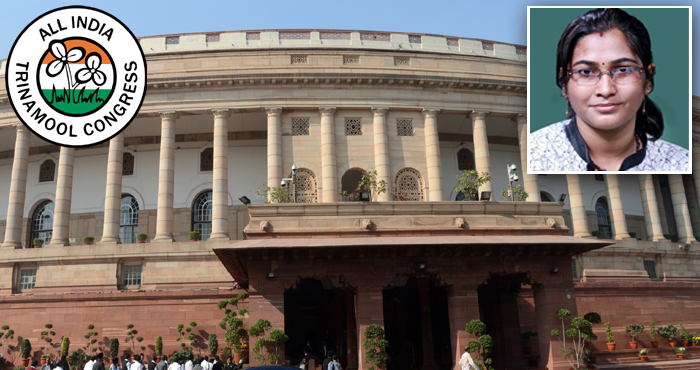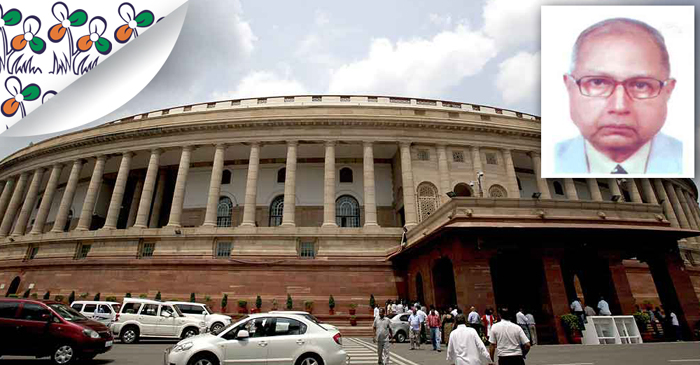In order to increase productivity and to protect people from the ill-effects of chemical fertilizers, the State Biotechnology Department has taken up a host of new initiatives, emphasising more on the use of biofertilizers.
Chief Minister Mamata Banerjee has laid a lot of stress on improving the standards of life for farmers. She has announced lots of new projects in this regard.
The Biotechnology Department has already formed various committees for the smooth implementation of various projects. One of the main purposes of the department is to increase the productivity of various plants by administering biofertilizers and others environment-friendly manures.
There will be scientists and research fellows who will carry out various researches on how biofertilizers can be used to increase the productivity of various plants and vegetables. For example, a banana tree gives fruits once a year; the department would carry out research on how that particular plant can give fruits three times a year. The scientists will also conduct tissue culture to increase productivity. According to the Biotechnology Minister, the Department’s new initiatives will also provide employment to many youth.
The department will also carry out research on how to increase the productivity of cattle. The State Government will provide assistance to those who rear cattle. The research will be conducted on how to increase the productivity of milk in cows.
The Biotechnology Department plans to open a unit in all the districts to provide technical assistance to farmers on how to increase productivity. The department is committed to ensure that the people can get vegetables, fruits and food grains free from toxic substances at the markets. A special emphasis of the department would be on how to increase the productivity in the comparatively unfertile districts of Bankura, Birbhum and Purulia.
The Biotechnology department is also providing assistance to other departments like Agriculture and Pisciculture to augment production.
It may be mentioned here that the State Government is going to set up four biotechnology hubs – in Bardhaman, Bankura, Haldia and Kalimpong. This will prove immensely beneficial to those involved in farming.
জৈব সারের ওপর গুরুত্ব আরোপ করছে রাজ্য সরকার
উৎপাদনশীলতা বৃদ্ধি করতে এবং রাসায়নিক সারের মন্দ প্রভাব থেকে সাধারণ মানুষকে রক্ষা করার জন্য রাজ্য বায়োটেকনোলজি বিভাগ নতুন একটি উদ্যোগ গ্রহণ করেছে, তা হল জৈব সার ব্যবহারের ওপর গুরুত্ব আরোপ করেছে।
মাননীয়া মুখ্যমন্ত্রী মমতা বন্দ্যোপাধ্যায় ক্ষমতায় আসার পর কৃষকদের জীবনযাত্রার মান উন্নত করার ওপর যথেষ্ট জোর দিয়েছেন। এই মর্মে বেশ কিছু প্রকল্পও ঘোষণা করেছেন তিনি।
বায়োটেকনোলজি বিভাগের ইতিমধ্যে বিভিন্ন প্রকল্প বাস্তবায়নের জন্য বিভিন্ন কমিটি গঠন করেছে। বিভাগের প্রধান উদ্দেশ্য হল জৈব ও পরিবেশবান্ধব সার ব্যবহারের মাধ্যমে ফসলের উৎপাদনশীলতা বৃদ্ধি।
উৎপাদনশীলতা কিভাবে বাড়ানো যায় তার ওপর একটি গবেষণাও করবে এই বিভাগ। গরু দুধ উৎপাদনশীলতা কিভাবে বাড়ানো সম্ভব তার ওপরও গবেষণা করা হবে। উৎপাদনশীলতা বৃদ্ধির জন্য বিজ্ঞানীরা টিস্যু কালচার করবেন। জৈবপ্রযুক্তি মন্ত্রীর মতে দপ্তরের এই নতুন উদ্যোগের মাধ্যমে অনেক জুবকের কর্মসংস্থান হবে।
ফসলের উৎপাদন কিভাবে বৃদ্ধি করা সম্ভব সেই সংক্রান্ত কিছু কারিগরি শিক্ষা কৃষকদের প্রদান করার জন্য একটি ইউনিট খোলার পরিকল্পনা করছে বায়োটেকনোলজি বিভাগ। মানুষ যাতে টাটকা ও টক্সিক ফ্রি শাক-সবজি, ফল পেতে পারেন সে ব্যাপারও নিশ্চিত করেছে এই দপ্তর। বাঁকুড়া, বীরভূম, পুরুলিয়া এইসব অনুর্বর জেলাগুলির উৎপাদনশীলতা বৃদ্ধির ক্ষেত্রে বিশেষ জোর দিচ্ছে এই বিভাগ।
এছাড়াও বায়োটেকনোলজি বিভাগ উৎপাদন বৃদ্ধি করার জন্য কৃষি, মত্স্য ও অন্যান্য বিভাগকেও সাহায্য করছে।
উল্লেখ্য, রাজ্য সরকার চারটি জৈবপ্রযুক্তি হাব তৈরি করছে – বর্ধমান, বাঁকুড়া, হলদিয়া এবং কালিম্পং-এ। এই হাবগুলি চাষবাসের সঙ্গে যারা জড়িত তাদের কাজে অত্যন্ত সাহায্য করবে।









